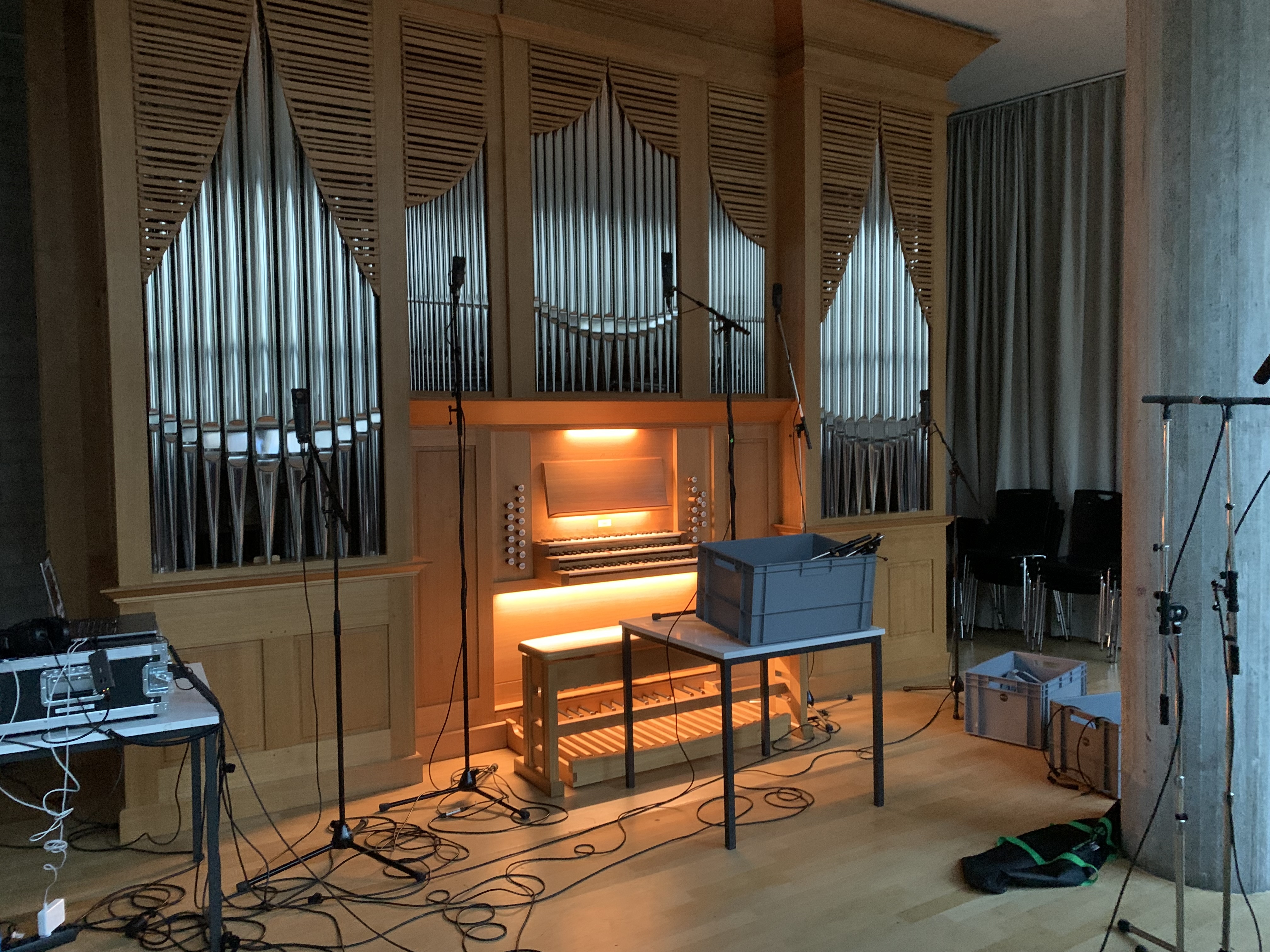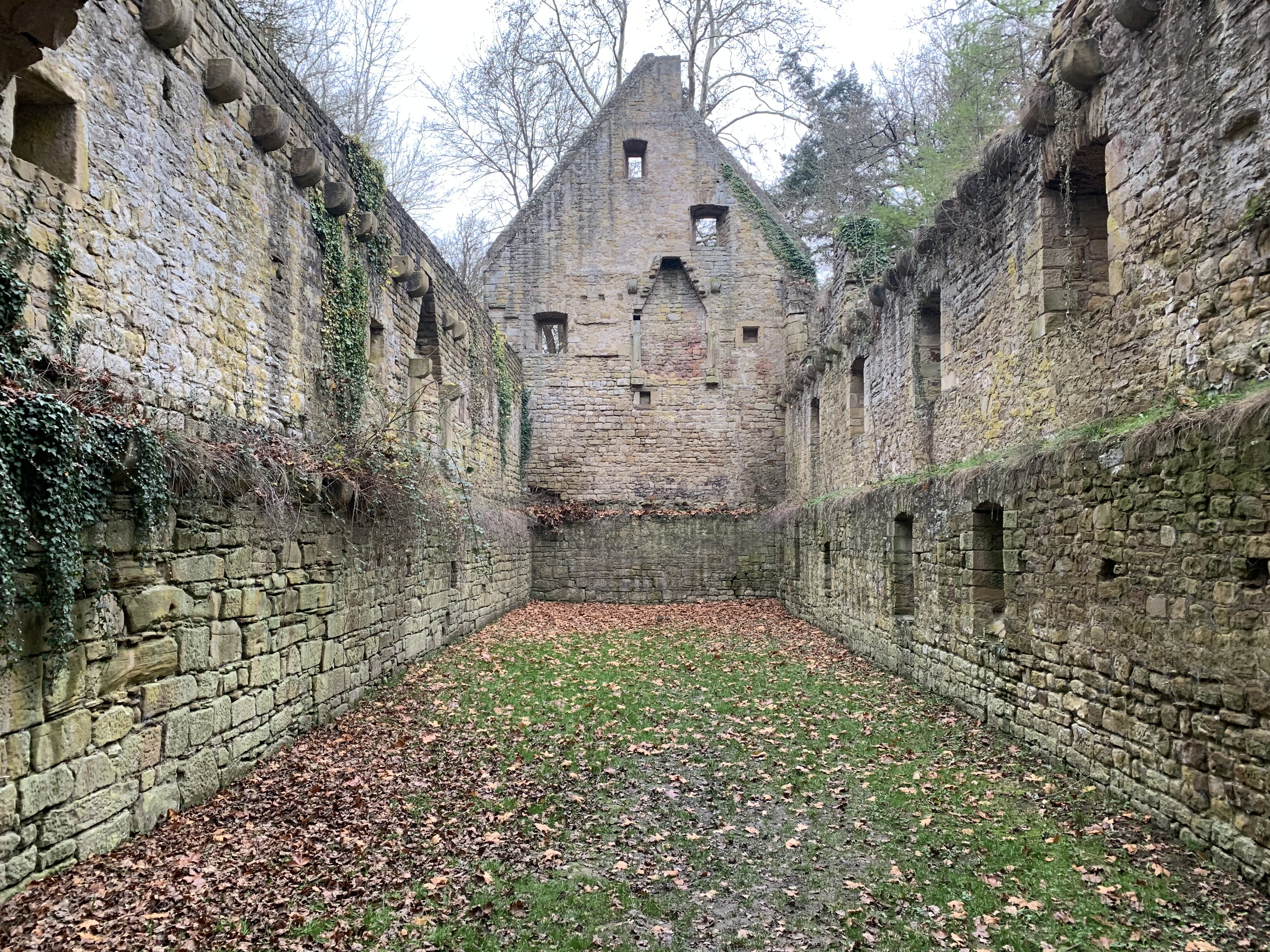
SELECTED WORKS
—
everything can save us nothing can save us (for organ and 3d audio system)
the snake that eats its own tail (for bass clarinet, cello, tuba and tuned oscillators)
ouroboros (for solo
organ)
I LOVE YOU HILDEGARD!
(virtual walk)
I LOVE YOU HILDEGARD!
All the Wonders of Six Little Spoons
RASP Lovers
Travel Adapter
Hidros 9 by Mats Gustafsson
everything can save us
nothing can save us
(for organ and 3d audio system)
________________
Utwór powstał w ramach stypendium, które realizuję od października 2025 - pod tytułem „Przestrzeń dźwięku jako materia kompozycji – konsultacje ze specjalistami i realizacja utworu w technologii object-based audio”.
Stypendium sfinansowane zostało przez Unię Europejską NextGenerationEU.
The work was created as part of a scholarship program that I have been carrying out since October 2025, entitled “Sound Space as a Compositional Material – Consultations with Specialists and the Realization of a Work Using Object-Based Audio Technology.”
The scholarship was funded by the European Union under the NextGenerationEU program.
![]()
Stypendium sfinansowane zostało przez Unię Europejską NextGenerationEU.
The work was created as part of a scholarship program that I have been carrying out since October 2025, entitled “Sound Space as a Compositional Material – Consultations with Specialists and the Realization of a Work Using Object-Based Audio Technology.”
The scholarship was funded by the European Union under the NextGenerationEU program.


the snake that eats its own tail (for cello, bass clarinet, tuba and tuned oscillators)
_________________
the snake that eats its own tail emerges from my ongoing exploration of harmonic worlds where the Western dichotomy between major and minor modes begins to dissolve. Composed entirely in 11-limit just intonation—a tuning system based on the natural harmonic series that allows for intervals expressed as whole-number ratios—the piece invites listeners into a space where familiar tonal reference points become blurred.
Performed by Carl Rosman – bass clarinet, Dirk Wietheger – cello, Maxime Morel – tuba, Carlos Lopes – oscillators;
world premiere of the piece: June 27, 2025, Studio of Ensemble Musikfabrik, Cologne (DE)
Performed by Carl Rosman – bass clarinet, Dirk Wietheger – cello, Maxime Morel – tuba, Carlos Lopes – oscillators;
world premiere of the piece: June 27, 2025, Studio of Ensemble Musikfabrik, Cologne (DE)
ouroboros (for solo organ) _________________
The piece explores the harmonic possibilities of the organ at Kunst-Station Sankt Peter in Cologne. This organ is special due to its exceptional number of registers known as "mutation stops," which allow for the creation of intervals tuned as ratios of whole numbers.
The piece premiered on November 21, 2024, at Kunst-Station Sankt Peter in Cologne (DE) as part of the Orgel-Mixturen 2024 festival.
The piece premiered on November 21, 2024, at Kunst-Station Sankt Peter in Cologne (DE) as part of the Orgel-Mixturen 2024 festival.

I LOVE YOU HILDEGARD!
(virtual walk)
_________________
I LOVE YOU HILDEGARD! is in a way a creation of an fictional reality, consisting of superimposed and modified fragments of Hildegard's monophonic pieces forming a completely new polyphonic piece for 12 voices;
it is a far-fetched fantasy and an idea of what Hildegard's music might have been like had it not been as we imagine it today, as well as a take on issues of truth, interpretation and manipulation in the sphere of music and sound.
The virtual walk is an attempt to reimagine what the space in which Hildegard von Bingen lived and created might have sounded like.
Based on 3D scans of the ruins of the monastery at Disibodenberg (where Hildegard lived for 39 years), Nieves de la Fuente and I created a fictional, imaginary space that could be home to Hildegard hundreds of years ago.
LINK TO THE EXPERIENCE:
https://www.nievesdelafuentegutierrez.com/Hildi/examples/basic/index.html
INSTRUCTIONS:
1. use with headphones only
2. open in full-screen mode, to switch to full-screen mode click on the icon with arrows in the lower right corner of the screen;
3. each blue box is a separate sound source; double-click the blue box to enable the sound source (box in green - sound is enabled, box in yellow - sound is disabled, box in blue - sound source not enabled)
4. move forward, backward, and sideways with the arrows or a,s,d,w, while to rotate (and also look up and down) use the mouse cursor.
open in Google Chrome!
.
Created as part of the fellowship in the topic “3D sound technology and VR”, which was funded by the European Union NextGenerationEU.
The fellowship includes meetings with Brigitta Muntendorf, Chikashi Miyama, Nieves de la Fuente and Rafal Ryterski.
.


 ruins of Disibodenberg monastery
ruins of Disibodenberg monastery
 3D scans of Disibodenberg monastery
3D scans of Disibodenberg monastery